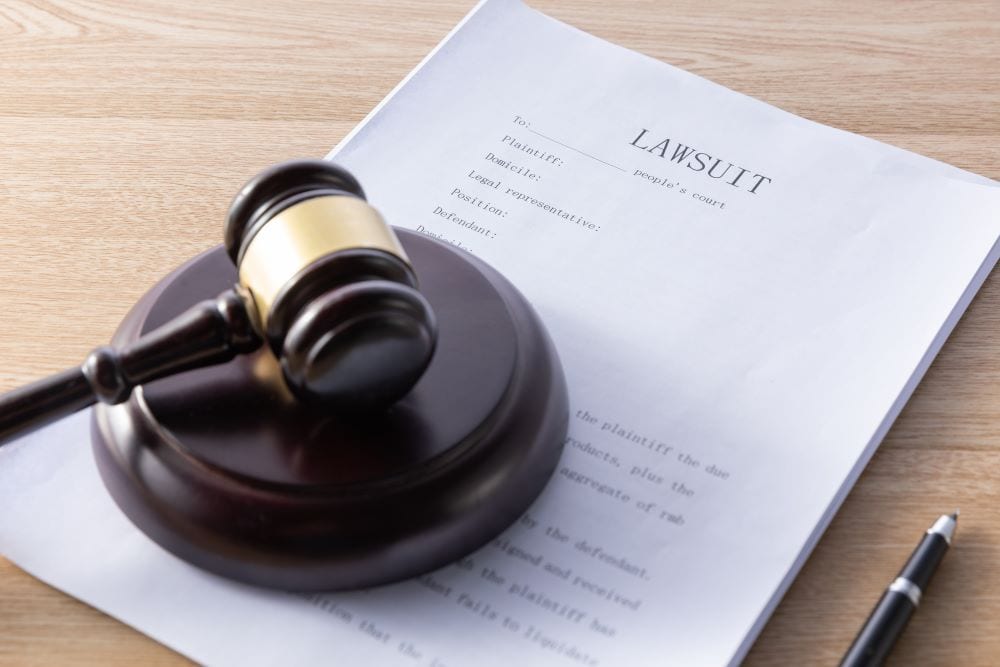
In the realm of corporate confidentiality, Non-Disclosure Agreements (NDAs) serve as the guardians of proprietary information, shielding it from unauthorized disclosure. But what happens when the stakes are higher, and ethical concerns clash with legal obligations? Can whistleblowing transcend the bounds of an NDA? This article delves into the intricate interplay between whistleblowing and NDAs, shedding light on the rights, responsibilities, and legal nuances involved.
What is a Confidentiality Agreement?
Before we delve into the specifics of whistleblowing with an NDA in place, let’s first understand what a confidentiality agreement entails. A confidentiality agreement, also known as a Non-Disclosure Agreement (NDA), is a legally binding contract between parties that outlines confidential material, knowledge, or information that the parties wish to share with each other for certain purposes, but wish to restrict access to or by third parties.
Typically, NDAs are signed in various scenarios, such as during mergers and acquisitions, employment agreements, or when disclosing sensitive information to potential investors. These confidentiality agreements aim to protect trade secrets, intellectual property, client information, and other proprietary data from being disclosed to unauthorized individuals or competitors.
Who Qualifies as a “Whistleblower”?
A whistleblower is an individual who exposes information or activities within a private, public, or governmental organization that is deemed illegal, unethical, or not in accordance with company policies and regulations. Whistleblowers play a crucial role in uncovering fraud, corruption, safety violations, environmental hazards, and other forms of misconduct.
Whistleblowers can be employees, contractors, or even former employees who have insider knowledge of the wrongdoing. They often risk their careers, reputation, and even personal safety to bring attention to matters of public interest.
How Do Non-Disclosure Agreements Affect Whistleblowing?
One of the central questions surrounding whistleblowing is whether an individual can disclose confidential information protected by an NDA when reporting misconduct. The answer to this question is nuanced and depends on various factors, including the nature of the wrongdoing, the terms of the NDA, and applicable laws and regulations.
In many cases, NDAs include provisions that permit disclosures required by law or to government authorities. These provisions are commonly known as “carve-out” or “exceptions” clauses and are intended to ensure that NDAs do not prevent individuals from reporting illegal conduct to the appropriate authorities.
However, even in the absence of explicit carve-out clauses, whistleblowers may still be protected under whistleblower laws and public policy considerations. Courts have consistently recognized the public interest in exposing illegal activities and have been reluctant to enforce NDAs that stifle whistleblowing efforts.
Can You Whistleblow if You Have an NDA?
The answer to this question isn’t a simple yes or no but rather contingent on various factors, including the nature of the disclosed information, applicable laws, and the public interest. While NDAs aim to safeguard legitimate business interests, they cannot be wielded as shields to conceal illegal activities or suppress disclosures vital to public welfare.
How to Blow the Whistle After Signing an NDA?
Navigating the whistleblowing landscape under an NDA requires careful consideration and strategic planning. Here are some steps to navigate this delicate process:
Assess the Legality: Evaluate the nature of the disclosed information vis-à-vis the NDA’s provisions and ascertain whether it falls within the realm of protected disclosures under whistleblowing laws.
Seek Legal Counsel: Consult with experienced legal professionals specializing in employment law and whistleblowing regulations to understand your rights, liabilities, and potential legal ramifications.
Document Diligently: Maintain meticulous records documenting the alleged misconduct, including dates, times, witnesses, and supporting evidence, to substantiate your claims and shield against retaliatory measures.
Follow Internal Protocols: Adhere to any internal whistleblowing policies or procedures outlined by your employer, if available, to escalate concerns through proper channels before resorting to external disclosures.
Consider Anonymity: Depending on the circumstances, whistleblowers may opt for anonymity or confidentiality protections to mitigate the risk of retaliation while still bringing attention to wrongdoing.
Laws and Precedents Prohibiting Restrictive and Illegal NDAs:
In recent years, legislative initiatives and judicial precedents have increasingly scrutinized overly restrictive NDAs that encroach upon whistleblowers’ rights or impede public disclosures. Several jurisdictions have enacted Federal laws to safeguard whistleblowers from retaliatory measures and invalidate NDAs that seek to suppress protected disclosures.
Enforceability of NDAs:
While NDAs are generally enforceable contracts, their validity and enforceability may be subject to judicial review, particularly in cases where they contravene public policy, infringe upon statutory rights, or suppress disclosures of illegal activities.
Can Whistleblowers Break NDAs?
Breaking an NDA entails significant legal risks and potential repercussions, including breach of contract claims, monetary damages, and injunctive relief sought by aggrieved parties. However, whistleblowers may be shielded from liability under certain circumstances, such as disclosures protected by whistleblower laws or in the public interest.
Whistleblower Protections and Benefits:
Recognizing the invaluable contributions of whistleblowers to transparency and accountability, various laws and regulations afford statutory protections and benefits to whistleblowers, including:
Legal Immunity: Shielding whistleblowers from civil and criminal liability for disclosures made in good faith and in accordance with applicable laws.
Anti-Retaliation Provisions: Prohibiting employers from retaliating against whistleblowers for engaging in protected disclosures, including termination, demotion, harassment, or adverse employment actions.
Monetary Rewards: Providing incentives and monetary awards to whistleblowers for disclosures resulting in successful enforcement actions or recoveries, often through government whistleblower programs.
How Can Whistleblowers Prevent Retaliation from Their Employer?
While the fear of retaliation can deter whistleblowers from coming forward, several strategies can help mitigate this risk:
Know Your Rights: Educate yourself about whistleblower protections afforded under relevant laws and regulations to assert your rights confidently.
Document Retaliatory Acts: Keep detailed records of any retaliatory behaviors or adverse actions taken by your employer following your disclosure, which can serve as evidence in legal proceedings.
Seek Legal Assistance: Consult with experienced employment law attorneys specializing in whistleblower protections to explore legal remedies and avenues for recourse in the event of retaliation.
Stay Vigilant: Remain vigilant for signs of retaliation, such as negative performance reviews, ostracism by coworkers, or sudden changes in job responsibilities. Promptly report any instances of retaliation to your attorney or the relevant authorities.
Utilize Whistleblower Hotlines: Many companies have established whistleblower hotlines or reporting mechanisms to allow employees to report misconduct anonymously. Take advantage of these resources if they are available to you.
Network and Support: Seek support from whistleblower advocacy groups, legal clinics, or professional networks to access resources, guidance, and solidarity in navigating the whistleblowing process.
How An Attorney Can Help You
An attorney can play a crucial role in assisting whistleblowers who are bound by Non-Disclosure Agreements (NDAs) and are considering blowing the whistle on illegal or unethical activities within their organization. Here’s how an attorney can help in this case:
Legal Analysis of the NDA: Attorneys scrutinize NDAs to assess enforceability and scope, clarifying what information can be disclosed.
Evaluation of Whistleblower Protections: Lawyers determine eligibility for legal safeguards against employer retaliation, guiding on safe reporting methods.
Advice on Reporting Procedures: Attorneys advise on optimal channels for reporting misconduct, considering nature and potential risks.
Preparation of Whistleblower Complaints: Lawyers assist in compiling evidence and drafting formal complaints for submission to authorities.
Negotiation with Employers: Attorneys negotiate modifications to NDAs or seek settlements to address concerns and potential retaliation.
Representation in Legal Proceedings: Legal representation is provided in administrative, arbitration, or litigation proceedings, advocating for the whistleblower’s rights.
Protection of Confidentiality and Anonymity: Attorneys strategize methods to safeguard whistleblower identity and privacy during reporting.
Advising on Potential Legal Risks: Attorneys assess legal risks such as breach of contract, defamation, and privacy invasion, offering strategies to mitigate them.

Uncover the Truth and Protect Your Rights with BLG
In conclusion, while NDAs serve as essential tools for safeguarding confidential information, they cannot be invoked to shield illegal activities or suppress whistleblowing disclosures vital to public interest and ethical integrity. Whistleblowers play a critical role in holding organizations accountable and upholding ethical standards, and their rights and protections must be upheld and safeguarded in the pursuit of transparency and justice. By understanding the legal landscape, exercising diligence, and seeking appropriate guidance, whistleblowers can navigate the complexities of whistleblowing under NDAs while fulfilling their ethical and legal obligations.
Are you facing the dilemma of blowing the whistle while bound by an NDA? Don’t navigate this complex terrain alone. At BLG, we’re here to guide you through every step of the process. Our experienced team specializes in whistleblower protection and can help you understand your rights, assess your options, and pursue justice.
Contact us today for a free consultation.




